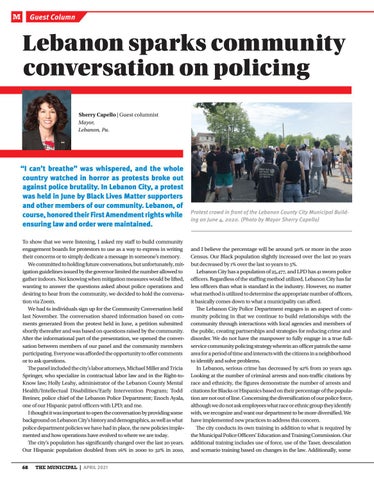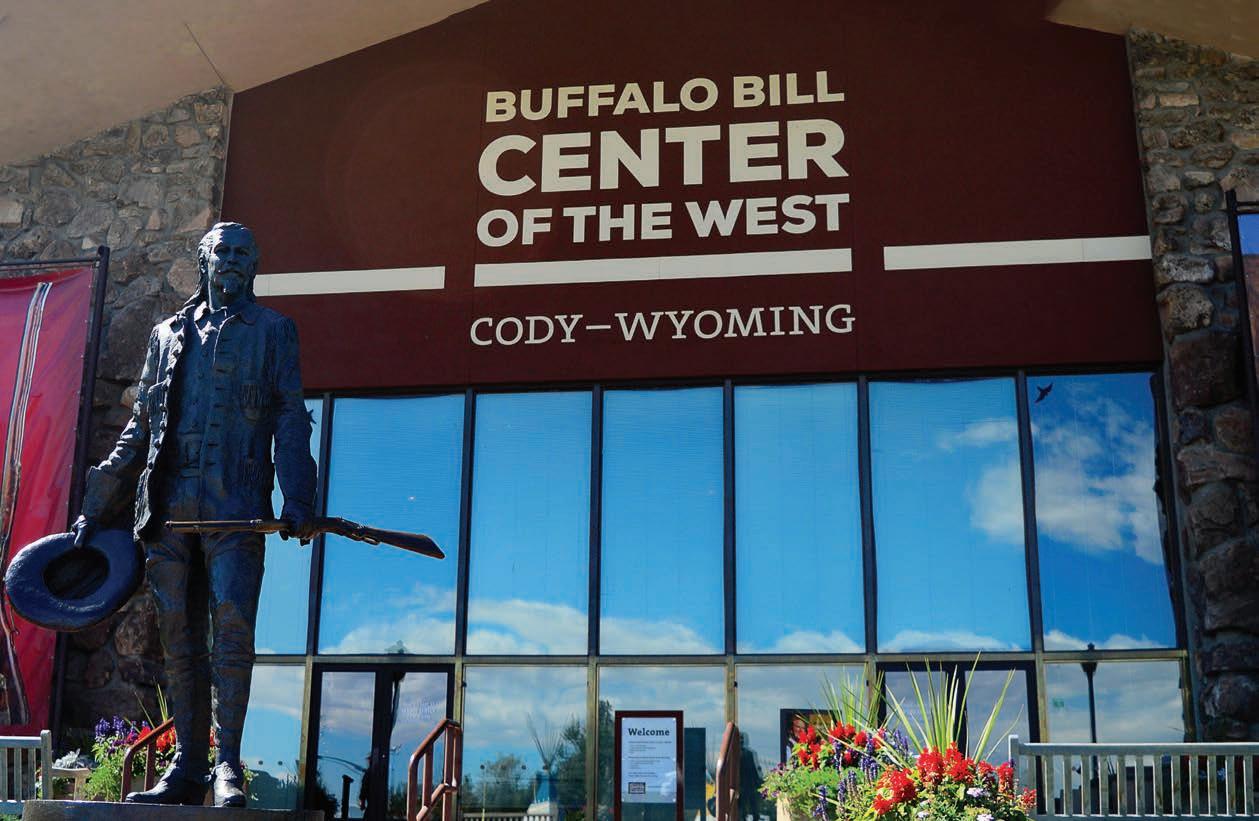M
Guest Column
Lebanon sparks community conversation on policing Sherry Capello | Guest columnist Mayor, Lebanon, Pa.
“I can’t breathe” was whispered, and the whole country watched in horror as protests broke out against police brutality. In Lebanon City, a protest was held in June by Black Lives Matter supporters and other members of our community. Lebanon, of course, honored their First Amendment rights while ensuring law and order were maintained. To show that we were listening, I asked my staff to build community engagement boards for protestors to use as a way to express in writing their concerns or to simply dedicate a message in someone’s memory. We committed to holding future conversations, but unfortunately, mitigation guidelines issued by the governor limited the number allowed to gather indoors. Not knowing when mitigation measures would be lifted, wanting to answer the questions asked about police operations and desiring to hear from the community, we decided to hold the conversation via Zoom. We had 61 individuals sign up for the Community Conversation held last November. The conversation shared information based on comments generated from the protest held in June, a petition submitted shortly thereafter and was based on questions raised by the community. After the informational part of the presentation, we opened the conversation between members of our panel and the community members participating. Everyone was afforded the opportunity to offer comments or to ask questions. The panel included the city’s labor attorneys, Michael Miller and Tricia Springer, who specialize in contractual labor law and in the Right-toKnow law; Holly Leahy, administrator of the Lebanon County Mental Health/Intellectual Disabilities/Early Intervention Program; Todd Breiner, police chief of the Lebanon Police Department; Enoch Ayala, one of our Hispanic patrol officers with LPD; and me. I thought it was important to open the conversation by providing some background on Lebanon City’s history and demographics, as well as what police department policies we have had in place, the new policies implemented and how operations have evolved to where we are today. The city’s population has significantly changed over the last 20 years. Our Hispanic population doubled from 16% in 2000 to 32% in 2010, 68 THE MUNICIPAL | APRIL 2021
Protest crowd in front of the Lebanon County City Municipal Building on June 4, 2020. (Photo by Mayor Sherry Capello)
and I believe the percentage will be around 50% or more in the 2020 Census. Our Black population slightly increased over the last 20 years but decreased by 1% over the last 10 years to 5%. Lebanon City has a population of 25,477, and LPD has 41 sworn police officers. Regardless of the staffing method utilized, Lebanon City has far less officers than what is standard in the industry. However, no matter what method is utilized to determine the appropriate number of officers, it basically comes down to what a municipality can afford. The Lebanon City Police Department engages in an aspect of community policing in that we continue to build relationships with the community through interactions with local agencies and members of the public, creating partnerships and strategies for reducing crime and disorder. We do not have the manpower to fully engage in a true fullservice community policing strategy wherein an officer patrols the same area for a period of time and interacts with the citizens in a neighborhood to identify and solve problems. In Lebanon, serious crime has decreased by 42% from 20 years ago. Looking at the number of criminal arrests and non-traffic citations by race and ethnicity, the figures demonstrate the number of arrests and citations for Blacks or Hispanics based on their percentage of the population are not out of line. Concerning the diversification of our police force, although we do not ask employees what race or ethnic group they identify with, we recognize and want our department to be more diversified. We have implemented new practices to address this concern. The city conducts its own training in addition to what is required by the Municipal Police Officers’ Education and Training Commission. Our additional training includes use of force, use of the Taser, deescalation and scenario training based on changes in the law. Additionally, some






